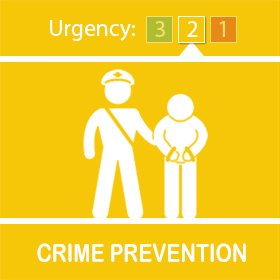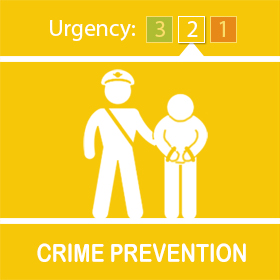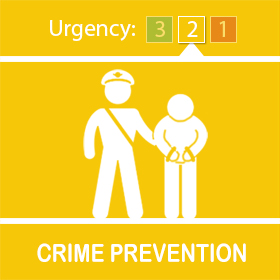Neighbourhood Watch Whatsapp Scam
Neighbourhood Watch
Alerts from our local neighbourhood watch team
WhatsApp Scam
We are continuing to see victims targeted on WhatsApp by criminals pretending to be someone they know – typically their children.
Criminals will usually begin the conversation with “Hello Mum” or “Hello Dad” and will say that they are texting from a new mobile number as their phone was lost or damaged. They will then ask for money to purchase a new one, or claim that they need money urgently to pay a bill.
The criminal will provide bank details for the payment to be made to, with some coming back with further demands for money.
If you receive a message like this from a friend or family member, don’t send any money until you’ve had a chance to call them and confirm their identity. Taking a moment to stop and think before parting with your money or information could keep you safe.
How to protect yourself:
STOP. THINK. CALL. If a family member or friend makes an unusual request on WhatsApp, always call the person to confirm their identity.
You can report spam messages or block a sender within WhatsApp. Press and hold on the message bubble, select ‘Report’ and then follow the instructions.
Forward scam text messages for free to 7726. Your provider can investigate the text and take action if found to be fraudulent.
Never share your account’s activation code (that’s the 6 digit code you receive via SMS).
Black Friday - Is it a scam?

Black Friday bargain? Or cruel online scam?
If you've been anywhere near the internet recently, you'll know that 'Black Friday' is fast approaching.
In fact, it's highly likely your email inbox has already been flooded with 'unbelievable offers'.
For sure there are bargains to be had - but there are also risks. And although many of us are now confident and comfortable shopping online, it's all too easy to fall for a scam.
So before you click that tempting link, just remember: if it sounds too good to be true, it probably is.
From past experience, products often involved in online fraud are electronics, clothing and tickets for flights and events. So be extra vigilant when shopping for those.
Common complaints include buyers receiving goods late, or not at all, or receiving goods that are either less valuable than those advertised or significantly different from the original description.
There are also other scams associated with online shopping. Here's a particularly plausible-sounding one that often does the rounds:
You receive a text about a missed package. Nothing unusual about that - you're expecting lots of deliveries at this time of year...
The text has a link that asks for payment to re-arrange delivery. Annoying, but it's only a few pounds, so fair enough...
It's a scam.
If you make this payment, you'll receive a phone call from someone claiming to be from your bank, informing you about suspicious transactions. You'll be told your account may have been compromised, and you'll be instructed to transfer your money to an alternative 'secure' account in order to prevent further losses...
And that's it - your money's gone.
We've said it before and we'll say it again - your bank (or the police for that matter) will NEVER ask you to move money to another account.
Let's all stay safe online, and avoid giving cyber-criminals an undeserved early Christmas present.
Home Delivery Scams

Home delivery companies Amazon, DHL, Evri, Royal Mail and UPS are the top five brands impersonated by scammers targeting the UK, and with Christmas fast approaching, we are warning shoppers to expect a flurry of fake texts and emails. These messages invite you to click links to copycat delivery websites so that scammers can steal your payment details or even retarget you with perfectly timed bank impersonation scams.
Never click on a link received via a text about a delivery, this could be a scam.
Stop and think, you shouldn’t have to pay a fee for a missed delivery. If you’re unsure and you think you have a package arriving, remain vigilant and check delivery notifications very carefully to ensure they are genuine.
Check what you’ve ordered online and track your parcel through the websites of legitimate delivery companies.
Published: 18/12/2024 Published by: Stanwick St John Parish Council
Return to News Page.
